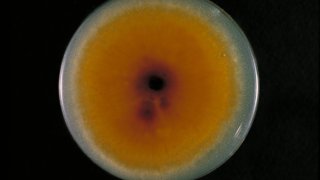
A sexually transmitted ringworm caused by a rare fungus has been reported for the first time in the United States.
The case report, published Wednesday in JAMA Dermatology by doctors at NYU Langone Health in New York City, comes as clinicians worldwide increasingly say they’re having trouble treating fungal infections.
“We think a lot about antibacterial resistance, but this is a very important time for us to think about anti-fungus resistance,” said Mahmoud Ghannoum, a professor of dermatology at the Case Western Reserve University School of Medicine in Cleveland. He was not involved with the new report.
The new case involves a New York City man in his 30s who reported having sex with multiple men during a trip to England, Greece and California. When he got home, he developed a red, itchy rash on his legs and across his groin and buttocks.
Get top local stories in DFW delivered to you every morning. >Sign up for NBC DFW's News Headlines newsletter.
Tests revealed he had a sexually transmitted fungus, called Trichophyton mentagrophytes type VII. It is the first time the fungus has been identified in the U.S. Last year, doctors in France reported 13 such cases. Twelve of those patients were men who have sex with men.
The American man’s infection responded to standard anti-fungal medications but ultimately took four and a half months to heal fully.
He was put on fluconazole for four weeks without improvement, then six weeks of terbinafine and approximately eight additional weeks of itraconazole. All are oral anti-fungals.
He did not have any other infections that could have made the problem worse.
Dr. Avrom Caplan, an assistant professor of dermatology at the NYU Grossman School of Medicine and author of the new report, said the case should raise awareness but not cause alarm in the general public.
“There’s no evidence that this is widespread, or that this is something that people really need to be worried about,” he said. “But if people are having itchy eruptions in areas like the groin, and it’s not getting better, see a doctor.”
Rash may look like eczema
While the infection was most likely transmitted through sexual contact, Caplan couldn’t rule out the possibility that the man acquired the fungus at a sauna he’d visited two months prior to his symptoms. The man said his sexual partners did not show any signs of ringworm.
Caplan said the rash may look more like an eczema flare than typical ringworm infections that form in circles. The infection is not life-threatening, but can cause permanent scarring.
He previously identified the first two cases of a different ringworm infection in 2023. Those infections, caused by Trichophyton indotineae, are not considered STIs but are drug-resistant and highly contagious.
Since then, Caplan’s team at NYU Langone Health has identified a total of 11 cases of Trichophyton indotineae ringworm in both men and women in New York City.
The new case report is “notable” said Jeremy Gold, a medical epidemiologist at the Centers for Disease Control and Prevention. He stressed that doctors should consider fungi along with viruses and bacteria as a potential cause of sexually transmitted disease.
“Oftentimes, what happens is that these patients receive multiple courses of antibacterial drugs which are not going to make the fungus better,” he said. “Clinicians should keep this in mind so that patients can get appropriate care.” He was not involved in the new case report.
Caplan also encouraged people to speak up and seek out treatment. For now, Trichophyton mentagrophytes type VII is treatable.
“If you have a rash or lesions on your skin that aren’t getting better, and you think it might be ringworm,” he said, “see your doctor.”
This story first appeared on NBCNews.com. More from NBC News:




